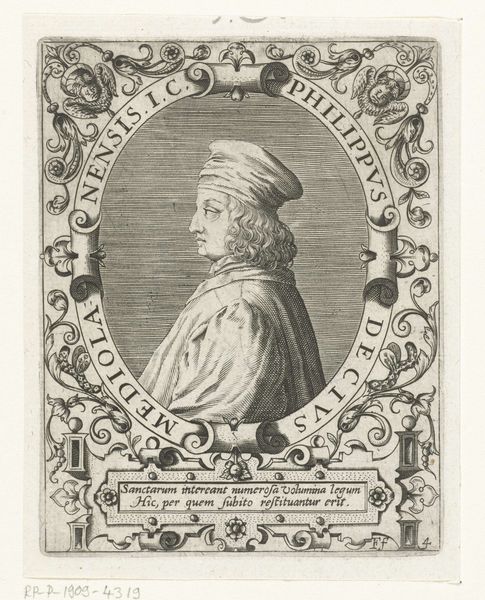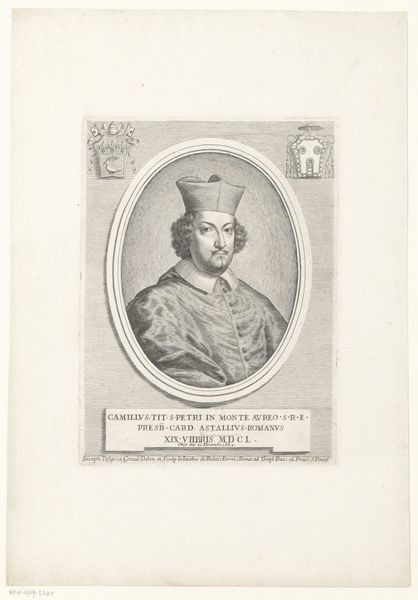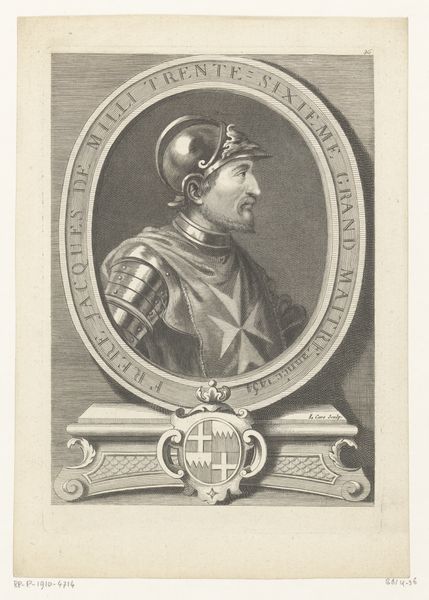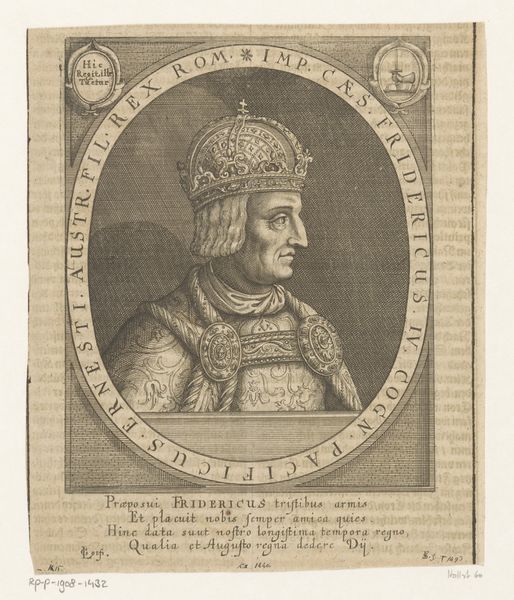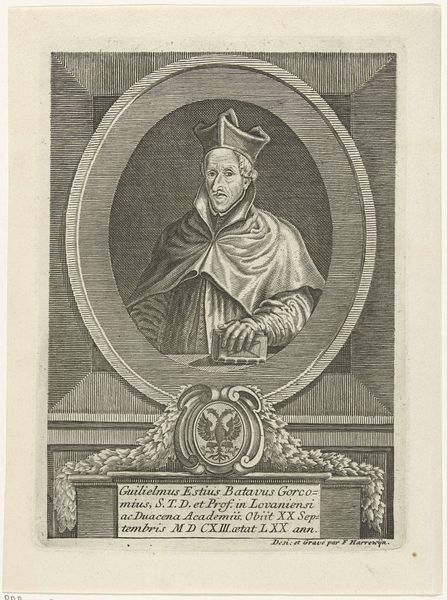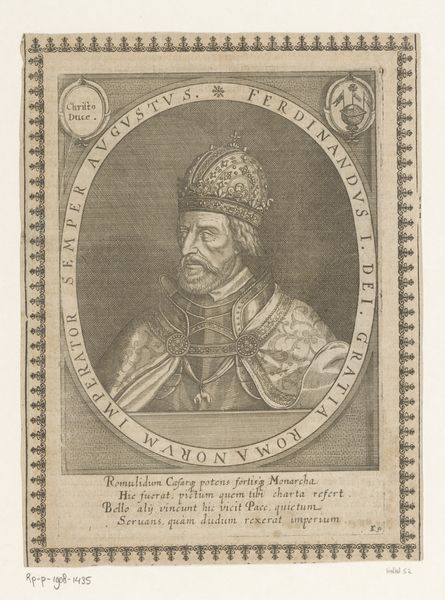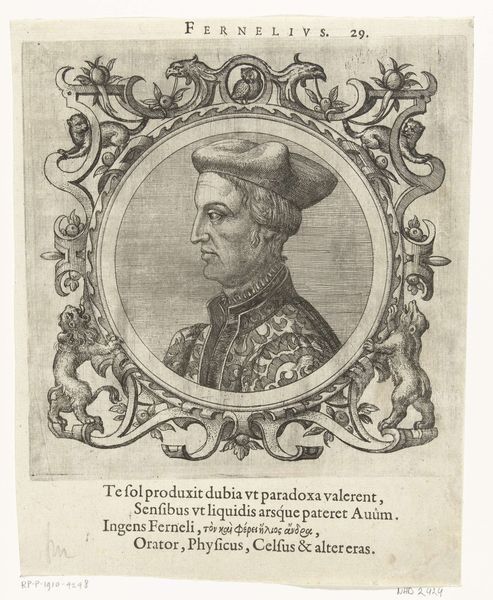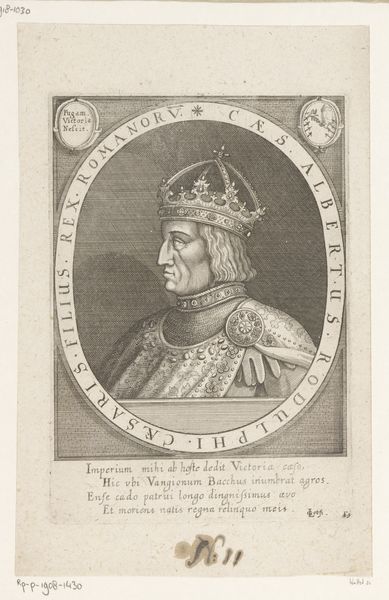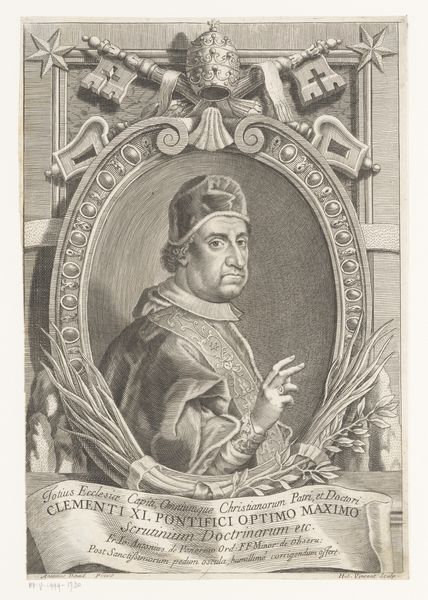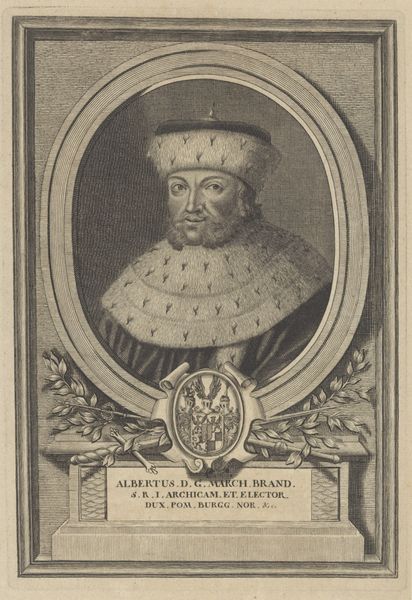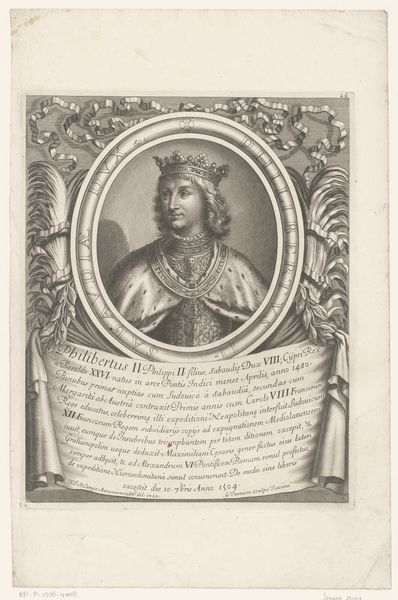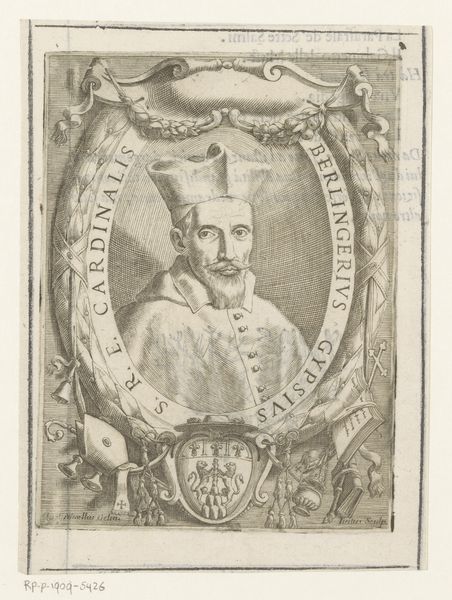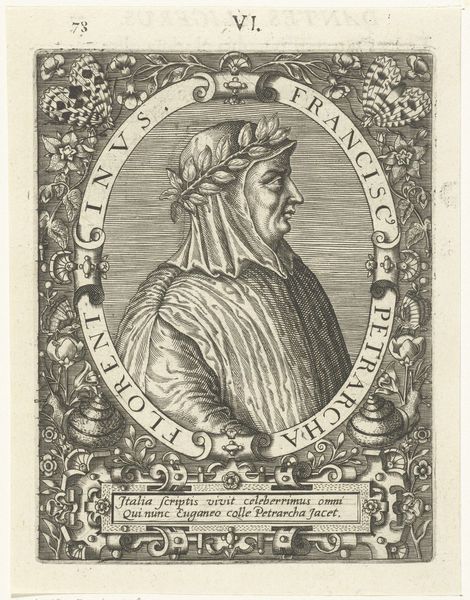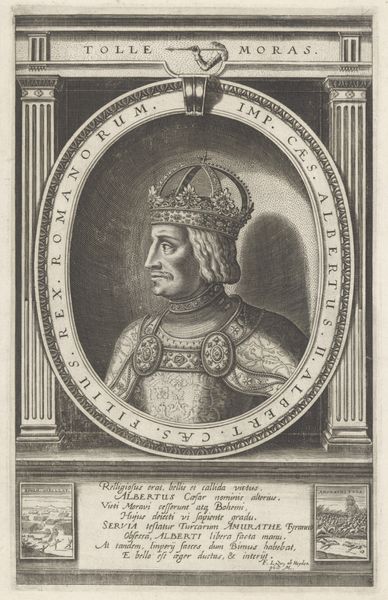
engraving
#
portrait
#
baroque
#
figuration
#
line
#
history-painting
#
engraving
Dimensions: height 172 mm, width 119 mm
Copyright: Rijks Museum: Open Domain
This print, depicting Doge Francesco Morosini, was made by Jan van Vianen in the late 17th or early 18th century. The image is an engraving, a process involving meticulous carving into a metal plate, which is then inked and pressed onto paper. Consider the labor involved: the careful cutting of lines to create light and shadow, the transfer of the image to a printing plate, and the repetitive work of printing itself. The dense network of lines, precisely rendered, gives the portrait a tactile quality, almost like a low relief sculpture. The contrast between the dark, defined lines and the pale paper creates a stark, dramatic effect. Prints like these were crucial to the circulation of images and ideas in early modern Europe. They democratized portraiture, making it available to a wider audience, even as they subtly reinforced hierarchies of power and status. Van Vianen's print is not just a likeness of a powerful man, but also a record of the skilled labor that brought that image into being. It reminds us that even seemingly straightforward images are the result of complex social and material processes.
Comments
No comments
Be the first to comment and join the conversation on the ultimate creative platform.
